Seven faculty named 2017 AAAS fellows
Caparon, Colditz, Cooper, Diamond, Dutcher, Eberlein and Gross honored

Seven faculty members at Washington University in St. Louis are among 396 new fellows selected by the American Association for the Advancement of Science (AAAS), the world’s largest general scientific society. Michael G. Caparon Jr., PhD; Graham A. Colditz, MD, DrPH; John A. Cooper, MD, PhD; Michael S. Diamond, MD, PhD; Susan K. Dutcher, PhD; Timothy J. Eberlein, MD – all at the School of Medicine – and Michael L. Gross, PhD, of Arts & Sciences and the School of Medicine, will receive the highest honor awarded by AAAS in recognition of their distinguished efforts to advance science and its applications.
The new fellows will be formally announced in the Nov. 24 issue of Science and honored Feb. 17 during the 2018 AAAS Annual Meeting in Austin, Texas.
Michael G. Caparon Jr., PhD
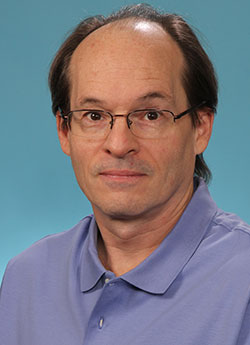
Caparon, a professor of molecular microbiology in the Division of Biology & Biomedical Sciences, is being honored for his studies of disease-causing bacteria, such as those that cause strep throat, scarlet fever and urinary tract infections (UTIs).
His work has advanced understanding of how bacteria and the animals they infect interact with each other to cause disease. Some symptoms of infection are caused by toxins released by bacteria. Caparon studies how interactions between bacteria and the immune system of an infected individual affect the release of specific toxins. The timing of toxin release and levels of toxins in the body may help explain why people infected with the same bacteria develop different constellations of symptoms. He also discovered a widespread system that bacteria use to inject their proteins directly into cells, a first step in transforming the cell’s behavior in ways that help the bacteria survive.
Caparon also studies the most common kind of infection in hospitals: UTIs caused by plastic tubes inserted into the bladder to help patients urinate. Bacteria can’t grow on the tubes directly, but Caparon discovered that the human body coats the plastic with proteins. The bacteria attach to the proteins on the tubes, gaining entry to the bladder and causing disease. He helped develop a vaccine that protected mice from UTIs by preventing bacteria from attaching to the proteins on the tubes.
Caparon earned his bachelor’s degree in microbiology from Michigan State University and a doctorate in microbiology from the University of Iowa. After completing postdoctoral research at Emory University in Atlanta, he joined the faculty at the School of Medicine in 1989.
Graham A. Colditz, MD, DrPH
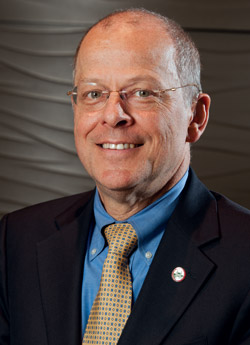
Colditz, the Niess-Gain Professor of Surgery and chief of the Division of Public Health Sciences, is being honored for distinguished contributions to cancer epidemiology and prevention, particularly through his translation of research to advance the popular understanding of strategies to reduce cancer risk.
As an epidemiologist and public health expert, Colditz has a longstanding interest in the preventable causes of cancer and other chronic diseases, particularly among women, and translating that research into guidelines and policies aimed at promoting healthier lives. His work has focused on establishing connections between numerous lifestyle factors, such as smoking, physical activity, diet and weight gain, and the risk of cancer and other diseases. He also has documented a link between smoking and risk of stroke and mortality among women, and between weight gain and risk of diabetes and certain cancers.
Colditz also is associate director of prevention and control at Siteman Cancer Center at Barnes-Jewish Hospital and Washington University School of Medicine, and deputy director of the university’s Institute for Public Health.
He earned his doctorate in public health at Harvard University and his medical degree at the University of Queensland. He completed his internship and residency in internal medicine at Royal Brisbane Hospital.
His past honors include the American Association for Cancer Research Award for Outstanding Achievement in Cancer Prevention Research; the American Society of Clinical Oncology-American Cancer Society Award and Lecture; and the American Cancer Society Medal of Honor. He joined the Washington University faculty in 2006.
John A. Cooper, MD, PhD
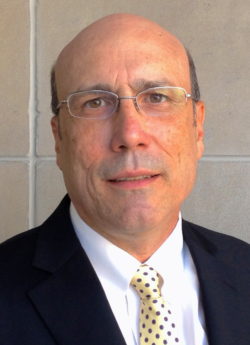
Cooper, a professor and head of the Department of Biochemistry and Molecular Biophysics, is being honored for distinguished contributions to the field of cell motility and the cytoskeleton, particularly for actin assembly and function.
The cellular skeletal system of filaments and motors provides the machinery for cells to change shape, divide and move. This movement is important in understanding disease, especially in understanding how tumor cells spread to other parts of the body and how the body’s immune cells seek and destroy invaders. Cooper is also a member of Siteman Cancer Center.
He received the Distinguished Faculty Award for Graduate Student Teaching from the School of Medicine in 2010, and he has served on the Executive Committee of the Faculty Council and represented the committee to the Faculty Senate.
Cooper earned his bachelor’s degree in biochemistry from Brown University. He then earned a medical degree and a doctorate in cell biology from Johns Hopkins University. Cooper came to Washington University in 1984 as a resident in anatomic pathology. He trained as a postdoc in the Department of Biochemistry and then joined the faculty in Cell Biology and Physiology. He was a Lucille P. Markey Scholar and an established investigator of the American Heart Association.
Michael S. Diamond, MD, PhD
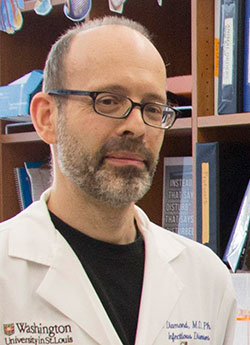
Diamond, the Herbert S. Gasser Professor of Medicine, is being honored for his studies of how viruses such as West Nile, Zika, dengue and chikungunya interact with and evade the immune system and cause disease.
Diamond — also a professor of molecular microbiology, and of pathology and immunology — is an infectious diseases specialist known for leading groundbreaking studies into Zika virus, including why and how it causes devastating neurological damage to the developing fetus. With colleagues, Diamond developed the first animal model of Zika infection during pregnancy; showed that the virus can infect the eye; identified protective antibodies against the virus; showed that Zika infection reduces the fertility of male mice; and helped to develop a Zika vaccine that is now in clinical trials.
Before turning his attention to Zika, Diamond was at the forefront of research into West Nile virus, a related virus that began causing brain infections in the United States in the early 2000s. He identified the immune cells and molecules involved in controlling West Nile infection. His experiments have helped identify potential drug and vaccine targets to prevent or treat West Nile disease. In addition, his laboratory showed that viruses can escape an animal’s immune system by chemically modifying their genetic material to masquerade as material from the infected animal. This finding turned out to have implications far beyond viral infections, as it demonstrates one way that the body determines which molecules and cells belong to itself, and which belong to others.
Diamond earned his bachelor’s degree in political science from Columbia University, and his medical degree and doctorate in cell and developmental biology from Harvard. After completing a research fellowship in molecular and cell biology at the University of California, Berkeley, Diamond moved to the University of California, San Francisco, where he completed his residency in internal medicine and a clinical fellowship in infectious disease. He returned to Berkeley to complete another research fellowship in infectious diseases in 2001, before joining Washington University School of Medicine that same year.
Susan K. Dutcher, PhD
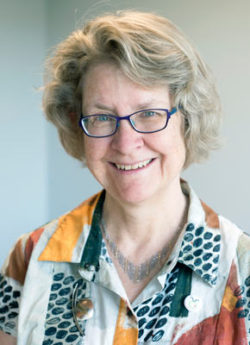
Dutcher, a professor of genetics and the interim director of the McDonnell Genome Institute at the School of Medicine, is being honored for distinguished contributions to the field of cell biology, particularly for studies examining the assembly and function of cilia.
Cilia are hair-like structures on the outside surface of cells. These structures play central roles in many aspects of fetal development, ensuring that organs end up in the right place, as well as in health and disease. For example, cilia clear dirt and bacteria from the lungs, help sperm swim and keep fluid flowing in and out of the brain. When cilia malfunction, they can contribute to cancer, kidney disease and other health problems.
Dutcher is a fellow of the American Academy of Arts and Sciences and a member of the scientific advisory board of the Children’s Discovery Institute, a partnership between the School of Medicine and St. Louis Children’s Hospital to support pediatric research. She was a Searle Scholar and has won the National Science Foundation’s Faculty Award to Women Scientists and Engineers. Last year, she received Washington University’s Distinguished Faculty Award for Education. She was recently elected a fellow of the American Society of Cell Biology.
Dutcher earned a bachelor’s degree in biology with honors at Colorado College. She went on to earn a doctorate in genetics from the University of Washington, where she trained with Leland Hartwell, PhD, who won the Nobel Prize in Physiology or Medicine in 2001. Before coming to Washington University in 1999, she was a professor of molecular, cellular and developmental biology at the University of Colorado, where she served as graduate director of the molecular biology program.
Timothy J. Eberlein, MD
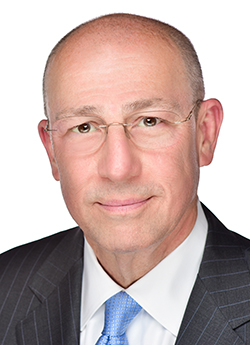
Eberlein, the Bixby professor of surgery and head of the Department of Surgery, is being honored for pioneering work as an innovative, national leader in surgery education, research and publishing, and in development of cancer center networks, research programs and clinical protocols. He also is director of Siteman Cancer Center and surgeon-in-chief at Barnes-Jewish Hospital.
Eberlein has a strong record in research, having received numerous grants and awards from the National Institutes of Health (NIH), the American Cancer Society and other organizations. His research has focused on studies of tumor immunology and various immune and vaccine therapies. Eberlein is also a committed teacher and has directed courses for the American College of Surgeons on grant writing as well as the conduct of clinical trials. His bibliography includes more than 300 peer-reviewed papers and chapters, with a focus on tumor immunology, molecular biology and breast cancer.
Eberlein graduated summa cum laude with a degree in biology from the University of Pittsburgh and later earned his medical degree, also from the University of Pittsburgh. He completed his surgical training at Brigham and Women’s Hospital in Boston, and research and clinical fellowships at the National Cancer Institute.
Eberlein is active in the American College of Surgeons, American Board of Surgery and National Cancer Institute. He is a past president of the Society of Surgical Oncology, Society of Surgical Chairs, American Surgical Association and Southern Surgical Association. He is a member of the National Academy of Medicine; and an honorary fellow of the Royal College of Physicians & Surgeons of Glasgow, the Swiss Surgical Society and the Royal College of Surgeons of Edinburgh; and an honorary member of the French Academy of Surgery in Paris.
Michael L. Gross, professor of chemistry in Arts & Sciences and of immunology and pathology and of medicine in the School of Medicine.
Michael L. Gross, PhD
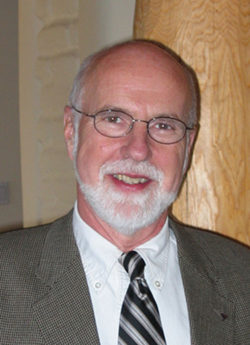
Gross — a professor of chemistry in Arts & Sciences, and of immunology and pathology and of medicine in the School of Medicine — is being recognized for distinguished contributions to physical-organic, analytical, environmental and biophysical chemistry by developing and applying mass-spectrometry methods.
Gross’ current research focuses mainly on the development of mass spectrometry in biophysics, specifically to probe protein-ligand interaction interfaces, affinities and folding/unfolding. The work includes both instrument and method development and application to important proteins and protein complexes.
Gross, who has worked in mass spectrometry for nearly 50 years, is considered one of the most productive and highly cited mass spectrometrists in history.
He began his career at the University of Nebraska-Lincoln, where he was a distinguished professor of chemistry and director of a National Science Foundation Center for Mass Spectrometry. In 1994, he joined the faculty at Washington University, where he is director of the National Institutes of Health (NIH) Mass Spectrometry Research Resource.
He has written more than 600 publications in mass spectrometry and received numerous awards, including the American Chemical Society (ACS) Field and Franklin medal for excellence in mass spectrometry in 1999, the ACS Midwest Award in 2002, the J.J. Thomson Medal in 2006, and the 2018 ACS Award in Analytical Chemistry. He was founding editor-in-chief for the Journal of the American Society for Mass Spectrometry from 1990 to 2015.
Gross graduated cum laude with a degree in chemistry from St. John’s University and earned his doctorate in organic chemistry from the University of Minnesota. He completed one year of postdoctoral research at the University of Pennsylvania and another year at Purdue University.






